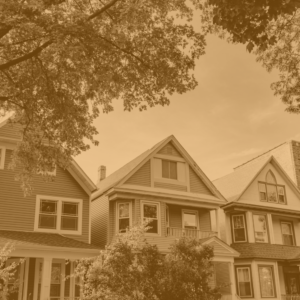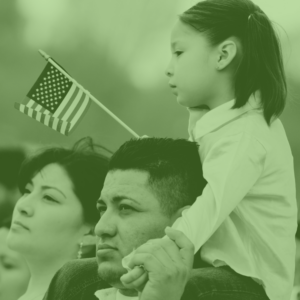Fiscal Year 2020 Budget Proposal Response
Governor JB Pritzker was sworn into office with a $3.2 billion budget deficit and almost $15 billion in unpaid bills and debt. His FY20 proposed budget focused on three key areas: education, health and human services, and public safety. Pritzker also emphasized a capital plan that will include investments in Illinois’ facilities and transportation infrastructure.
Gov. Pritzker stated that the FY20 budget plan was part of a multi-year endeavor to get Illinois fiscally stable and to eliminate its structural deficit. The address highlighted plans to create new revenue that will balance the budget, one of those streams being a progressive income tax that the Latino Policy Forum has actively advocated in previous administrations. This not only helps solve the budget problem but makes our tax system fairer. Other forms of revenue streams that Pritzker mentioned include legalizing and taxing cannabis sales and sports gambling. The Forum also supports Pritzker’s signing of a new minimum wage bill.
The Forum will accept Gov. Pritzker’s invitation to help his administration create a fairer budget and encourage legislators in Springfield to pass policies that benefit all Illinoisans, including Latino families. As the legislative session moves forward, the Forum will monitor the following:
FY20 Illinois State Board of Education budget proposal:
The state has an obligation to fairly fund public schools and ensure equitable access to quality educational programming. The governor’s FY20 budget proposes $28.9 billion for education, providing funding from cradle to career programming.
In 2017, Illinois passed the Evidence-Based Funding Formula (EBM) and is expected to have a fully funded formula by 2027. The FY20 budget proposes to invest $375 million for EBM, $25 million more than what was promised statutorily. Pritzker’s proposed budget puts us on the right path to meet the goal of fully funding the formula by 2027. Moving forward with EBM, the administration should consider the critical role bilingual education programming provides for the growing population of English Learners. For example, in 2017, bilingual education received $38 million through EBM, including a $29 million dollar increase and tiered funding. Although these resources helped many districts make up for years of underinvestment, the state needs to continue making commitments to this growing student population.
In addition, Pritzker’s proposal included a $100 million increase to the Early Childhood Block Grant (ECBG) and an additional $3.8 million for the Preschool Development Birth to Five Grant.
Despite this substantial increase in the proposed budget, the early education community requested $150 million dollars to the ECBG for FY20. Additional resources are necessary to adequately serve and provide quality learning in underserved communities in our state. Latino children are on average 11.5 months behind their white peers in reading skills at kindergarten entry, which is why continued investment to expand these services is imperative to ensure children have a strong foundation for learning.
FY20 Illinois Department of Human Services (IDHS) budget proposal:
Children and Families
A strong commitment to programs that improve the healthy development of children and the earning potential of their caregivers is crucial for a thriving Illinois. Gov. Pritzker’s budget recommendations put children and families at the center of his decision-making. Supporting Illinois’ working families, especially Latinos, through these programs will result in a stronger, more resilient economy.
The following areas in the governor’s FY20 DHS proposed budget are critical to highlight:
- $30 million increase to the Child care Assistance Program which would allow for an expansion of childcare eligibility, from 185 percent to 200 percent below the Federal Poverty Level.
- $7 million increase to Early Intervention program services for children with developmental delays.
- Level funding for the Healthy Families program and a 4.3 percent increase in the Parents Too Soon program, which both provide vital support services to new and growing families.
- $250,000 increase toward homelessness prevention(Gov. Pritzker mentioned the Homelessness Prevention Program and stated that “one paycheck is often the only firewall against homelessness.”
- The Forum supports the efforts of our community partners working to address this issue statewide.
Immigration
The governor’s budget for IDHS includes recommendations that maintain funding for Immigrant Integration Services and Illinois Welcoming Centers. This funding carries out the governor’s executive order he signed on January 24, ensuring that Illinois, home to 1.8 million immigrants, continues to support immigrant integration services.
- Funding for Welcoming Centers for FY20 has been maintained at just under $1.5 million
- These programs are meant to help immigrants gain access to state programs that connect them to services such as healthcare, childcare, education, labor and employment.
- Funding for Immigration Integration Services was also maintained at over $6 million
- These programs help immigrants participate in adult education and file to become U.S. citizens.
FY20 Capital budget proposal:
The FY20 proposed capital budget is described as a “baseline” maintenance program to the growing infrastructure needs of the state. Pritzker’s maintenance plan includes approximately $2.6 billion in capital needs, including $1.8 billion for roads, $600 million for facilities, and $150 million for colleges and universities.
While state infrastructure needs continue to grow, early childhood capital is a topline priority for the Forum. For example, in 2009, early childhood education facilities were promised $45 million out of the Early Childhood Construction Grant (ECCG). However, only 6 percent of total applicants received awards from ECCG.
As this was 10 years ago, capital needs have continued growing and many facilities still need to be constructed across the state.
The early childhood education community is currently requesting $250 million in new capital money.
Overall, the Forum is optimistic with the direction the state is heading in, especially with Latino representation in government. It is clear that Pritzker has made a priority of having Latinos in his administration. In his first months in office, he already has tabbed two Latino deputy governors, Forum co-founder and former board chair, Sol Flores, and Jesse Ruiz, who has been an ally of the Forum’s on public education matters.
In addition, the Forum looks forward to working with top levels of state government Latinos Pritzker has hired, including Aurora Rep. Linda Chapa LaVia, Director of the Department of Veterans Affairs, Martin Torres, the Forum’s former associate director who is now part of the governor’s policy team, First Assistant to Deputy Governor for Budget & Economy Lisa Duarte, Irma Snopek, who has advised the Forum on education matters and is also a first assistant to deputy governor, and Teresa Reyes, in Lt. Gov. Juliana Stratton’s office.
There are numerous other Latinos who have been close allies of the Forum in the past who also have been hired to key positions in the administration. The Forum, through its partners in its Illinois Latino Agenda, had collected numerous resumes and submitted them to the governor’s office for hiring consideration to ensure an adequate pool of qualified Latino candidates.
n the coming year, the Forum will continue advocating for legislation that lines with the above budgetary priorities. CLICK HERE to see what the Forum is working on substantively in 2019.




